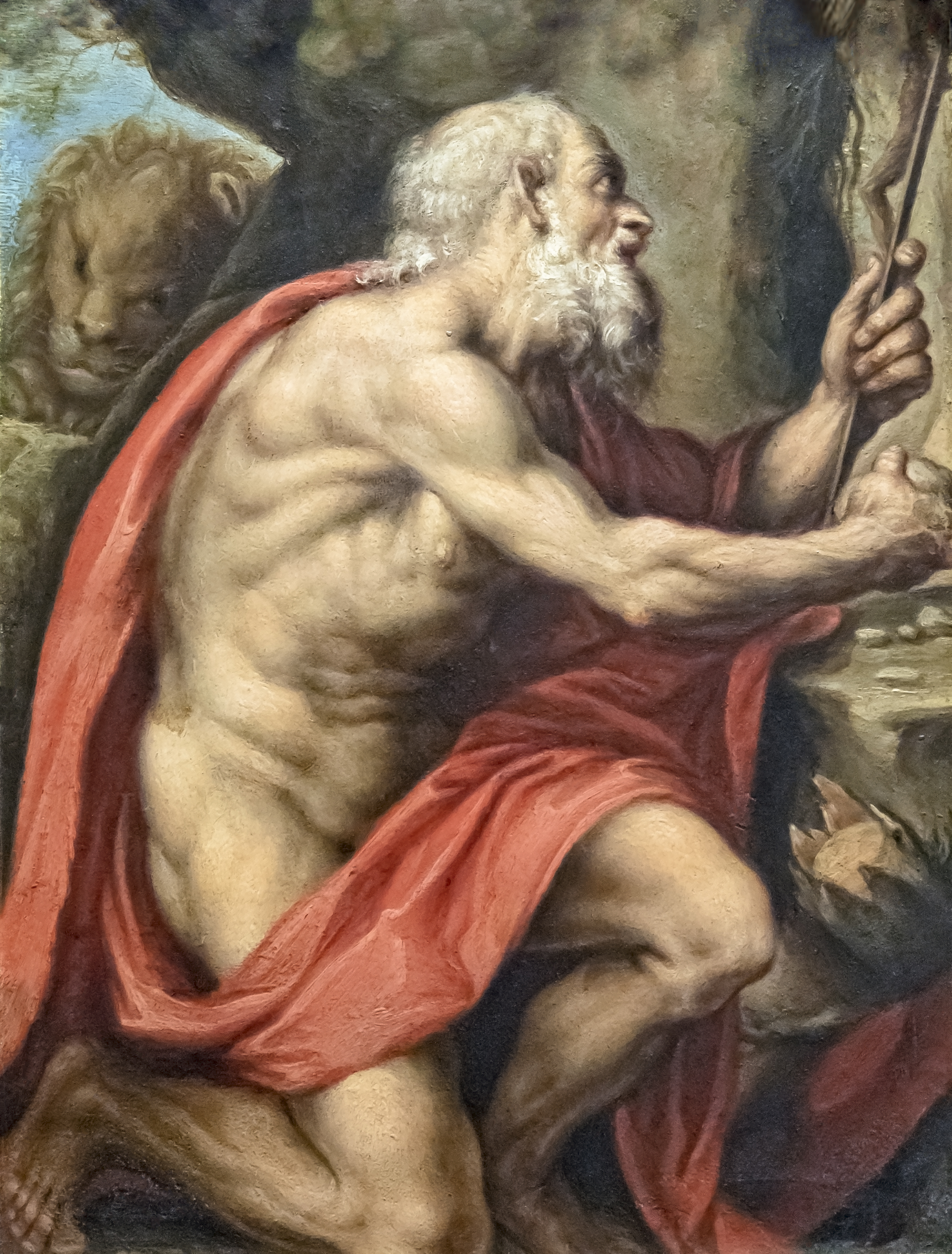„Den Tugenden benachbart sind die Laster.“
Dialog gegen die Luziferianer, 15
Original lat.: "Vicina sunt vitia virtutibus."
Sophronius Eusebius Hieronymus war Kirchenvater, Heiliger, Gelehrter und Theologe der alten Kirche. Er gehört in der katholischen Kirche zusammen mit Ambrosius von Mailand, Augustinus und Papst Gregor I. zu den vier spätantiken Kirchenlehrern des Abendlandes. Gedenktag ist der 30. September. Dieser gilt für die evangelische, anglikanische, römisch-katholische, orthodoxe und armenische Kirche.

„Den Tugenden benachbart sind die Laster.“
Dialog gegen die Luziferianer, 15
Original lat.: "Vicina sunt vitia virtutibus."
„Ein voller Bauch diskutiert leicht über das Fasten.“
Epistulae 58,2
Original lat.: "Plenus venter facile disputat de ieiuniis"
„Einem einzigen Zeugen glaubt man nicht, selbst wenn es Cato wäre.“
Adversus Rufinum 2,24
Original lat.: "Unique testi nec Catoni creditum est"
„Geirrt zu haben ist menschlich, und einen Irrtum einzugestehen ist Kennzeichen eines Weisen.“
Briefe
Original lat.: "Erravisse humanum est, et confiteri errorem prudentis."
Epistulae 57,12 - Hieronymus bezeichnete damit die schlichte Sprache der Jünger im Neuen Testament
Original lat.: "Venerationi mihi semper fuit non verbosa rusticitas, sed sancta simplicitas."
„Unerfahrenheit führt zu Selbstvertrauen, Bildung zu Scheu.“
Original: Imperitia confidentiam, eruditio timorem creat.
Quelle: Epistulae 73,10
“Yet such is the order of nature. While truth is always bitter, pleasantness waits upon evildoing.”
Ita se natura habet, ut amara sit veritas, blanda vitia existimentur.
Letter 40
Letters
“The privileges of a few do not make common law.”
Privilegia paucorum non faciunt legem.
Exposition on Jona
Commentaries, Old Testament
“We are always ready to imitate what is evil; and faults are quickly copied where virtues appear inattainable.”
Proclivis est enim malorum aemulatio, et quorum virtutes assequi nequeas, cito imitaris vitia.
Leter 107
Letters
“Every day we are changing, every day we are dying, and yet we fancy ourselves eternal.”
Quotidie morimur, quotidie commutamur, et tamen aternos nos esse credimus.
Letter 60; Translated by W.H. Fremantle, G. Lewis and W.G. Martley. From Nicene and Post-Nicene Fathers, Second Series, Vol. 6. Edited by Philip Schaff and Henry Wace. (Buffalo, NY: Christian Literature Publishing Co., 1893.) Revised and edited for New Advent by Kevin Knight. http://www.newadvent.org/fathers/3001.htm
Letters
Commentary on Jeremiah
Commentaries, Old Testament
Book I, 18
Adversus Jovinianum
“That clergyman soon becomes an object of contempt who being often asked out to dinner never refuses to go.”
Facile contemnitur clericus, qui saepe vocatus ad prandium, ire non recusat.
Letter 52
Letters
“And had I taken the line -so often adopted by strong men in controversy- of justifying the means by the result.”
Et sicut viri fortes in controversiis solent facere, culpam praemio redimerem.
Letter 48
Letters
“Everything must have in it a sharp seasoning of truth.”
Nisi quod in se habet mordacis aliquid veritatis.
Letter 31
Letters
“If there is but little water in the stream, it is the fault, not of the channel, but of the source.”
Si rivus tenuiter fluit, non est alvei culpa, sed fontis.
Letter 17
Letters
“Even brute beasts and wandering birds do not fall into the same traps or nets twice.”
Bruta quoque animalia et vagae aves, in easdem pedicas retiaque non incidunt.
Letter 54 http://www.monumenta.ch/latein/text.php?tabelle=Hieronymus&rumpfid=Hieronymus,%20Epistulae,%203,%20%20%2054&level=4&domain=&lang=1&id=&hilite_id=&links=&inframe=1
Letters
Book II, 14
Adversus Jovinianum
“Never look a gift horse in the mouth.”
Noli equi dentes inspicere donati.
On the Epistle to the Ephesians
Commentaries, New Testament
“Grandes materias ingenia parva non sufferunt.”
Small minds can never handle great themes.
Letter 60
Letters
“Plenus venter facile de ieiuniis disputat.”
When the stomach is full, it is easy to talk of fasting.
Letter 58
Letters
“Asino quippe lyra superflue canit.”
It is idle to play the lyre for an ass.
Letter 27; Translated by W.H. Fremantle, G. Lewis and W.G. Martley. From Nicene and Post-Nicene Fathers, Second Series, Vol. 6. Edited by Philip Schaff and Henry Wace. (Buffalo, NY: Christian Literature Publishing Co., 1893.) Revised and edited for New Advent by Kevin Knight. http://www.newadvent.org/fathers/3001.htm
Letters
“To sin is human, to lay snares is diabolical.”
Book III, sec. 33
Apology Against Rufinus https://www.newadvent.org/fathers/2710.htm
“It is not the sheep only who abide in the Church.”
The Dialogue Against the Luciferians https://www.newadvent.org/fathers/3005.htm
“Undoubted faith towards God it is hard indeed to find.”
The Dialogue Against the Luciferians https://www.newadvent.org/fathers/3005.htm